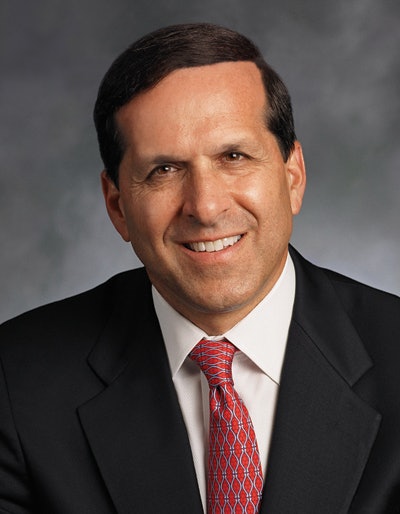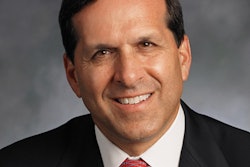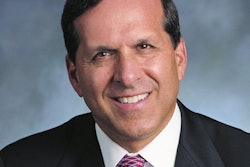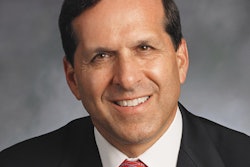
Dentistry, like all industries, has unique characteristics. The ability to accumulate wealth for a private equity fund CEO, retail store clerk, real estate broker, or other companies are all different. This article assumes that the dentist has ownership in a practice, which gives an immediate advantage to accumulating wealth in the U.S. today.
The background of wealth accumulation for dentists
Although there are exceptions to everything I will talk about in this article, there are very few, and most dentists are not the exception. The main objective of this of this article is to help dentists understand the pathway to wealth accumulation and how most dentists who become wealthy can accomplish this task, and it is a task!
- Point No. 1: Dentists do not start earning significant income until they enter practice. This means that they are generally in the age range of 26 to 28 years old. I personally remember as a general dentist my friends buying houses when I was still in a one-bedroom apartment. The opportunity to increase income once you become an associate or owner in a dental practice gives you a chance to make up for lost time financially, but even that takes some time.
- Point No. 2: Most dentists do not have trust funds. The offspring of the wealthy typically do not become dentists or orthodontists. Some go into the family business, but generally, they do not go into dentistry. There are not that many independently wealthy dental students in school today, which means that most dentists do not have significant financial support or a trust fund or a large inheritance from their parents or other family members. They mostly have large student loans. Most dentists will have to earn their own wealth.
- Point No. 3: A dental practice is an excellent opportunity to produce a high-level income compared to most Americans.
- Point No. 4: Dentists are not investment experts. They do not spend all day every day focused on their investments and opportunities. Even those individuals who live day to day in the financial world often make mistakes and have down years. Dentists are dentists and not investment managers. Most of them will earn their living and incomes from the practice until they build up a significant level of passive income from investments.
- Point No. 5: Dentists who lose money need time to make up for the losses. The larger the loss, the more time it will take. In other industries, entrepreneurs and owners might be able to sell equity in their business, sell a division of the company, or sell the entire company and start over. These are typically not options for most dentists.
The reality of wealth accumulation for dentists
Most dentists will earn most of their money in their practices. This means the goal is for the practice to increase production and collections on an annual basis, allowing dentists to have income and savings as discussed in detail below. The reality is that the practice is the ATM for most dentists and will determine how much income is earned for lifestyle and how much money is available to be dedicated to savings each year.
It is certainly true that dentists who are more frugal in their lifestyle can save more money, but that is all directly proportional to practice performance. We recommend that great attention be paid to the daily operations of the practice.
To achieve this, the systems of the practice must be excellent, which allows the team to become trained and production to increase. Our mantra at Levin Group for all practices is to increase production every year.
If you increase production every year, your practice will always be fine and eventually be a top performer. This is the insight and pathway to wealth accumulation for dentists. But there’s more …
The 3 steps of wealth accumulation for dentists
We all love to read about the overnight billionaire, and there have been a few, but they are very few. These are the stories that create interest, and many of them are true, although some of them we find out later are based on fudging numbers, fraud, or overall mismanagement. For those very few exceptions, we can be jealous and wish we were them.
Dentists have a very distinctive pathway to wealth accumulation. Again, there are very few exceptions, but what I am going to outline is a pathway that most dentists can use to accumulate wealth, have excellent financial careers, become financially independent at a reasonable age, and be protected financially.
There are three principles of wealth accumulation for dentists and all three need to be followed to accumulate the right level of wealth. These principles are as follows:
- Increase income every year.
- Save and invest the right amount of income every year, adding to the retirement funding and overall net worth.
- Don’t make significant mistakes financially.
Let’s look at each of these individually.
Principal No. 1: Increase income every year
Dentists can earn anywhere from hundreds of thousands of dollars to $1 million plus or more each year. It all depends typically on the gross revenue of the practice. Most practices should have an overhead of approximately 59%. This makes math simple. If the practice earns $1 million a year, the dentists will have an income of $410,000 a year and so on.
Principal No. 2: Save the right amount every year
How much should each dentist save annually? That varies based on each dentist’s goals, lifestyle, desires, targeted retirement age, etc. However, I would suggest an excellent concept is to increase the amount of income saved each year.
Notice the theme of increasing income and increasing savings contribution each year. Maximize every opportunity to take advantage of tax-advantaged retirement funding. This is a gift of our era that will pay you back over and over in later years.
Live within or slightly below your means. I am not suggesting that you live in a shack in the woods, but I am suggesting that you focus on savings as the first check you write every week, month, or year. Retirement savings alone may not be sufficient to help you reach financial independence at a reasonable age.
Debt has become a challenge for many dentists in saving money. Forty years ago, most of the debt was buying into or opening a practice. However, the advent of student loans has changed the game. Dentists are now further behind at the beginning in terms of having to pay off debt, and this will increase the amount of time it will take to reach financial independence unless these principles are carefully followed.
One aspect of savings is to recognize that most of what you put away should stay away. Saving money and then taking money out to buy luxury items, take trips, etc., derails the wealth accumulation process. That is the beauty of many retirement funds, because you cannot withdraw money without paying a penalty. It is a disciplined approach to wealth accumulation.
Principal No. 3: Don’t make significant financial mistakes
The third aspect of wealth accumulation is not to have big setbacks. Dentists are highly intelligent individuals, and some begin to believe that they can match the financial experts when it comes to investments or what they read about in the paper or hear about in the news.
It is human nature to want to accumulate wealth quickly and then be able to purchase anything you’d like and not have to worry about it. Unfortunately, this is not the normal path for dentists until a certain level of wealth is actually accumulated.
One mistake we have seen at Levin Group repeatedly is that new dentist clients will contact us after significant financial setbacks. Although you may not be able to control illness or divorce, you can certainly control making risky investments.
One rule of thumb is to never put more than 10% of your net worth into any one investment. Although this is not set in stone and is merely an opinion, it would prevent many dentists from experiencing significant losses.
Summary
Focus on earning income from your practice to grow savings and increase it every year. Don’t use savings whenever possible, and don’t make significant mistakes.
Going for giant returns has risk, and we all know that risk equals return. What you were never told is risk often results in a negative return and that is why they call it risk.
Sixty-five percent of entrepreneurs are bankrupt within 10 years of launching their companies. Dentists have a fantastic opportunity for excellent wealth accumulation, but as the old maxim goes, it might be best to “get rich slowly.”
Dr. Roger P. Levin is CEO of Levin Group, a leading practice management and marketing consulting firm. To contact him or to join the 40,000 dental professionals who receive his Practice Production Tip of the Day, visit LevinGroup.com or email [email protected].
The comments and observations expressed herein do not necessarily reflect the opinions of DrBicuspid.com, nor should they be construed as an endorsement or admonishment of any particular idea, vendor, or organization.



















